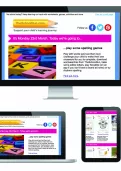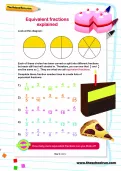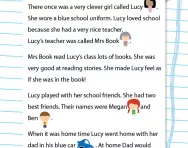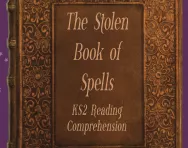Important update from TheSchoolRun
For the past 13 years, TheSchoolRun has been run by a small team of mums working from home, dedicated to providing quality educational resources to primary school parents. Unfortunately, rising supplier costs and falling revenue have made it impossible for us to continue operating, and we’ve had to make the difficult decision to close. The good news: We’ve arranged for another educational provider to take over many of our resources. These will be hosted on a new portal, where the content will be updated and expanded to support your child’s learning.
What this means for subscribers:
- Your subscription is still active, and for now, you can keep using the website as normal — just log in with your usual details to access all our articles and resources*.
- In a few months, all resources will move to the new portal. You’ll continue to have access there until your subscription ends. We’ll send you full details nearer the time.
- As a thank you for your support, we’ll also be sending you 16 primary school eBooks (worth £108.84) to download and keep.
A few changes to be aware of:
- The Learning Journey weekly email has ended, but your child’s plan will still be updated on your dashboard each Monday. Just log in to see the recommended worksheets.
- The 11+ weekly emails have now ended. We sent you all the remaining emails in the series at the end of March — please check your inbox (and spam folder) if you haven’t seen them. You can also follow the full programme here: 11+ Learning Journey.
If you have any questions, please contact us at [email protected]. Thank you for being part of our journey it’s been a privilege to support your family’s learning.
*If you need to reset your password, it will still work as usual. Please check your spam folder if the reset email doesn’t appear in your inbox.
Reading to learn: how to get the most from reading with your children

Most schools recommend that you have your child read to you every day. While – in theory – I couldn’t be more keen on this idea, as a busy parent of two I know – in reality – this is incredibly tricky if not impossible!
That said, learning how to improve upon the time you do get to hear them read, or even when you’re reading to them, can really help them with their literacy at school – especially when Key Stage 1 SATS are looming.


Start a unqiue learning programme!
- Weekly programme for each school year
- Worksheets sent direct to your inbox
- Keeps your child's learning on track
An important aspect of the English SATs is reading comprehension, when your child reads to a teacher or teaching assistant, and they are asked questions around the story. Doing the same at home will not only prepare them for this specifically, but is generally a great habit to get into as it will help turn them into enthusiastic, critical, mindful readers who enjoy and appreciate stories on an intellectual level.
Below are some questions to get you started. Once you get used to incorporating such questions into the routine, they’ll come naturally!
Questions while selecting a book: • Why did you want to read this book? |
Questions prior to reading the book: • What is the title of this book? |
Questions while reading the book: • What has happened so far? What do you think might happen next? |
Plot questions after reading the book: • What happened in the beginning? |
Character questions: • What do we learn about X in the beginning of the story? |
Appreciation questions: • Did you enjoy this story? |
Words and concepts to introduce and use when reading stories with your child:
|
|
Learn more about creating a reading-friendly home to encourage your child to pick up and read a new book, and find out 10 ways that you can bring books to life for your child.








